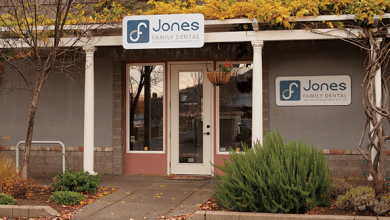What if I Have a Dental Emergency?
During this time of the COVID 19 pandemic many people are uncertain about their health, their livelihood, the overall economy, and the future. The stress that we all feel is real. We are being bombarded with biased and even objectively false propaganda-like information from positions of authority and leadership that we truly need to be rational right now. My thought is that we are all capable in our own way of moving forward.
Now more than ever we need to build community, even if it is a virtual one at times. Now more than ever we need to do what we can within our own sphere of influence and power to pick up the slack left by leadership of Rhetoric and bias over substance. In that spirit I will be partnering with the LocalsGuide to continue to write articles that hopefully speak to some the needs of our community, doing Zoom meetings and webinars addressing Dental Health concerns of our community, as well as offering some tele-dentistry for patients that call my emergency number.
During this time where we are required by law to stop treating patients as usual, my first thought involves the person who is having a problem but doesn’t know whether it is an emergency and doesn’t know what to do about it. The more we can avoid the ER the better during a time of pandemic and therefore solving dental problems before they require an ER visit is crucial.
I will be offering some general dental advice but I am required to say that individual cases can vary and it is important to reach out to a dentist and some form of exam is likely necessary to know for certain what your needs are.
Let’s define some common dental concerns/emergencies and what you should do.
• Toothache: Dull, deep, bounding waves of pain that often come on at night or stop you from sleeping. This is usually a sign of irreversible pulpal irritation in the tooth. This requires immediate attention. You should call a dentist, and/ schedule an immediate appointment either in person or via tele-dentistry. Often Antibiotics will be used so be prepared to mention any allergies.
• Swelling: If you notice an area of swelling, often tender and warm usually around or above or below a tooth. This is a sign of a bacterial infection. It requires immediate attention even if it is not painful. You should call a dentist, and/ schedule an immediate appointment either in person or via tele-dentistry. Often antibiotics will be used so be sure to discuss any allergies.
• Trauma: If there is a fall, an accident, or injury to the teeth or jaw. The severity of the injury will determine the need. It can range from an ER visit to a phone call with a dentist. The keys here are to manage the big stuff first. Was there any brain trauma? Broken bones? Does the jaw function properly- can you open and close? Do the teeth come together properly? Does it hurt? What causes the pain? As a rule if it hurts talk to someone about it.
• Tooth knocked completely out: If it is a baby tooth leave it out of the mouth. For adult teeth, touch the root surface as little as possible, place the tooth in a “tooth saver kit” (you can get these at a drugstore or my office) or you can use a cup of cow’s milk or even hold it in the mouth. It is imperative that you get a hold of a dentist immediately to potentially re-implant the tooth ASAP.
• Tooth pushed out of position: You often can’t bite the same way as before. Call a dentist immediately this can be put back in place and often that tooth can be saved with little consequence if you act quick.
• Broken tooth: A piece of tooth or filling appears to be missing from your tooth. You often notice what feels like a “giant” hole in the tooth. First know that all missing pieces of tooth will feel very large no matter the relative size. This is something that is NOT an immediate emergency unless you are in pain. You should call a dentist, schedule an appointment for an exam or at least send them a picture of the break. The common feeling from this is cold or hot sensitivity that ranges from mildly sensitive to very sharp but short lived. This is in contrast to the kind of pain found in the above Tooth Ache. If you can see blood or in the broken portion of the tooth it will require more immediate care.
• Pain on Biting: This can be short lived sharp pain or a sharp pain that then creates an ache for a while. Inspect the tooth if any part of the tooth is moving separate from the rest of the tooth immediate attention is required. If it demonstrates a sharp pain on biting but no ache afterwards then an appointment is required but is not an immediate emergency. If bounding ache follows biting, then treatment should be sought out sooner. Call a dentist and follow up with an appointment.
• Crown or restoration falls out: Although this could mean that the tooth is not stable to chew on you are safe to wait for an appointment. Call your dentist to set up an appointment to re-evaluate the tooth and restoration to stabilize the tooth. Often there is little to no pain in this scenario in spite of it being very unsettling. Many times, the restoration can be recemented.
• Jaw Dysfunction: If you are suffering from Jaw issues that are not caused by a macro (larger) trauma then it is likely something that can be managed with NSAIDS for the immediate need and then a consultation with a dentist. If you can not close your jaw or if you can not open your jaw then these are of greater concern and require an emergency visit to your dentist.
Home Management:
Minor gum irritation, inflammation, bleeding is common and frequently relieved by proper brushing(2 minutes), flossing, and irrigation/rinsing. I recommend using a teaspoon of salt in a cup of lukewarm water to rinse for 30 seconds multiple times a day. The problem should not persist beyond 3-4 days. If it does, call a dentist.
Ambesol and the sort will only relieve superficial pain. A cut on the gums or an erupting tooth coming through the gums might be relieved but a real tooth ache will not be served by this treatment.
If you are an adult struggling with minor dental pain and able to take ibuprofen (Advil) then I recommend 4-600mg every 4-6 hrs for pain. This is 2-3 tabs of 200mg ibuprofen every 4-6 hrs. A healthy patient should never take more than 3200 mg in a 24 hr period. Your individual case or the preference of your dentist may alter this guidance. Note: An aspirin allergy will also make you allergic to ibuprofen so it should be avoided. Do not use pain meds indefinitely without a diagnosis and treatment plan to solve the underlying condition.
If you need help feel free to call us at Jones Family Dental, 541-488-5088.
Leadership is not about titles, positions, or flowcharts. It is about one life influencing another.
John C Maxwell




